Vegetarian 'Kibbeling' Delicious Fried Cauliflower Dutch Food Heritage

Kibbeling Foodwiki
Kibbeling is a Dutch snack consisting of battered chunks of fish, commonly served with a mayonnaise -based garlic sauce or tartar sauce. In the nineteenth century, it denoted the salted waste (the cheeks) of the cod fish, which was an important part of the popular diet. It is a popular dish in the Netherlands.
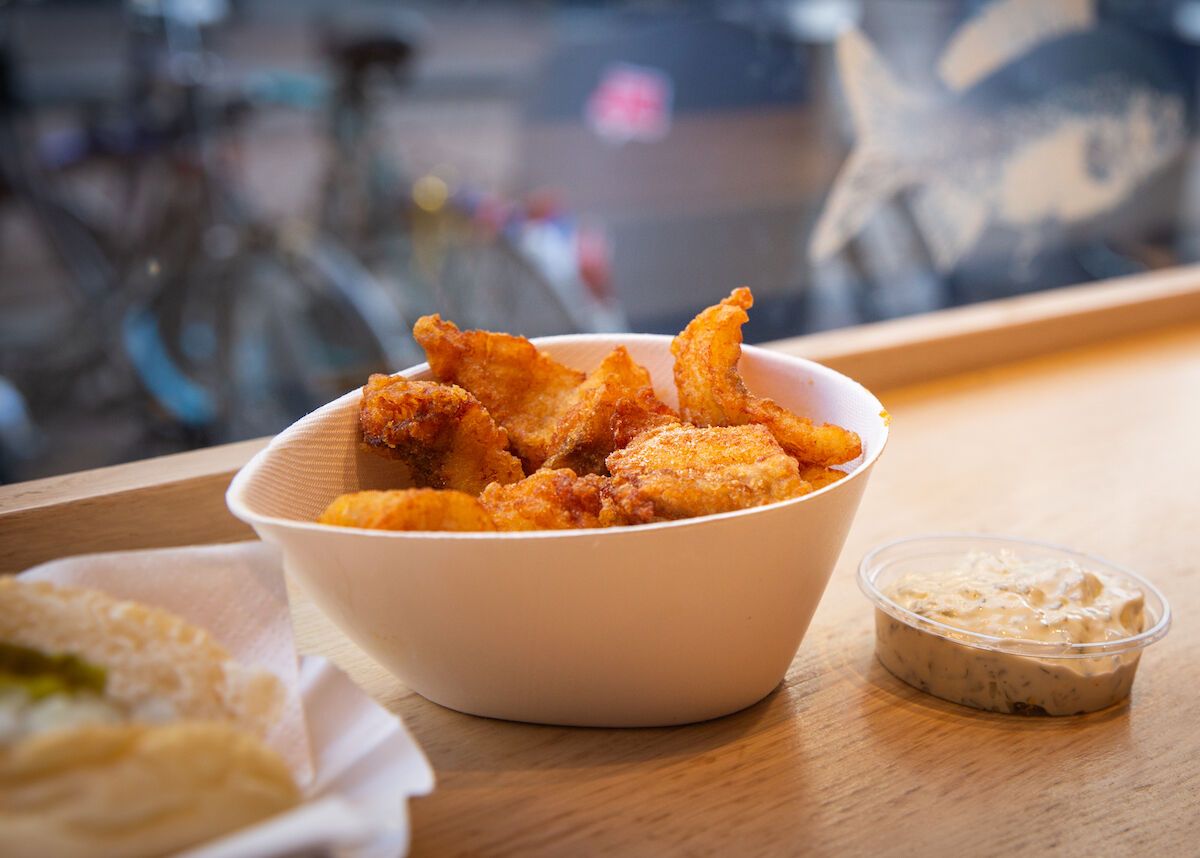
What Is Dutch Kibbeling and Where To Try It in Amsterdam and Holland
Toch is er veel verschil in kibbeling en is er niet één ingredient voor het krokante stukje vis. Het beste hiervoor is kabeljauw, maar vanwege de stijgende prijzen verkopen veel viswinkels geen kabeljauw meer als kibbeling, maar gebruiken zij vissoorten als pollak, heek, wijting en koolvis. Zonde, vinden wij bij Visgilde Vermaas.
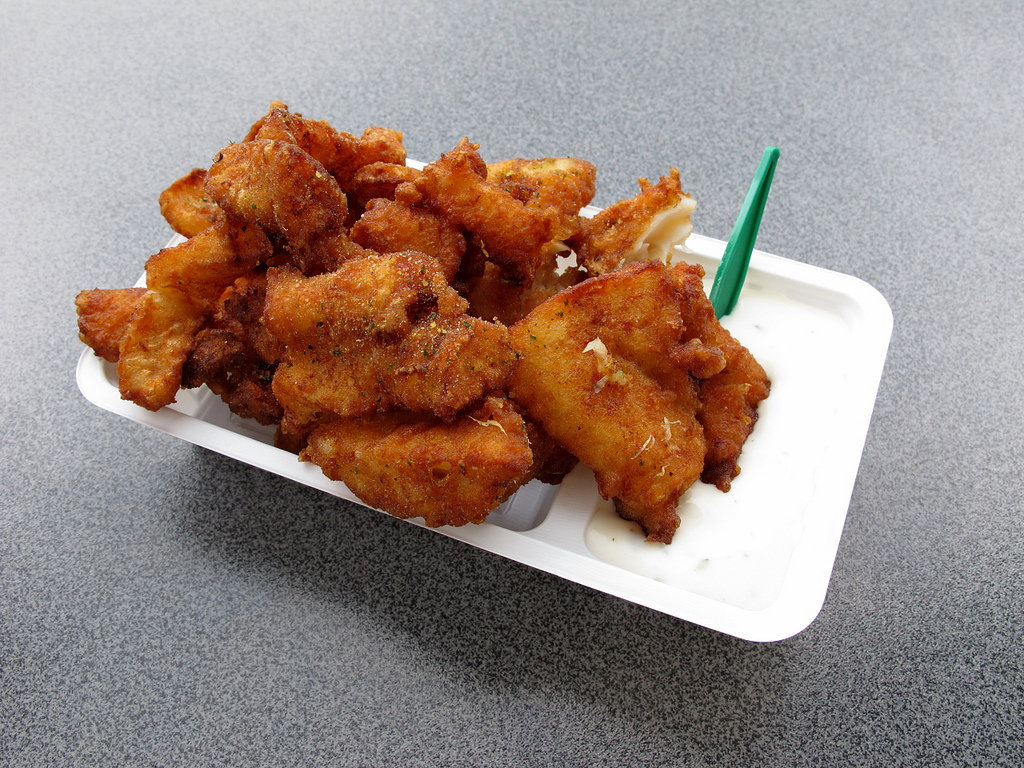
Kibbeling los gevroren 1 kg
Eating kibbeling is a thing of its own. Every kibbeling stall in the country is stalked and frequented by seagulls, therefore finding a safe location to enjoy your fresh box of kibbeling is a necessary task.. For the brave-hearted foodies, ditch the fork that comes with your batch and dig right in with your hands for an authentic but messy experience (sanitize or wash them hands first though.
The Ravenous Scientist Dutch fish and chips Kibbeling!
Kibbeling. Kibbeling is a popular Dutch street food item consisting of pieces of fish that are dipped in batter, deep-fried in hot oil, and served with a dipping sauce such as garlic sauce, remoulade, ravigote, or whiskey sauce. In the Netherlands, kibbeling is mostly consumed as a snack, but it can also be prepared for dinner, when it is.

Hoe gezond is kibbeling? Consumentenbond
The name kibbeling is a shortened, simplified version of kabeljauwwang, the Dutch word for cod cheek. The name refers to any waste products from the cod, which in the 18th and 19th centuries referred to the whole head of the fish. These scraps were, at the time, food reserved for peasants and the poor, but by the 20th century, fishmongers.

How to make fried fish / Kibbeling (+ Tips and Recipe) FoodCrumbles
150 milliliters of milk. Cut the cod into pieces (+/- 4 cm) and sprinkle with half of the fish herbs and some salt and pepper. Toss the pieces well. Make a batter of the flour, egg yolk, rest of the fish herbs and milk. Dip the pieces of cod well into the batter so that everything is covered.

Kibbeling (Hollanda) Mutfak Kültürü
Wat is kibbeling? Echte kibbeling wordt van oudsher van kabeljauw gemaakt. De stukjes worden door een beslag gehaald, gefrituurd en eventueel bestrooid met viskruiden. Maar kabeljauw is schaarser geworden en daardoor duurder. Veel kibbeling wordt daarom niet meer van kabeljauw gemaakt, maar van alaskakoolvis (pollak).
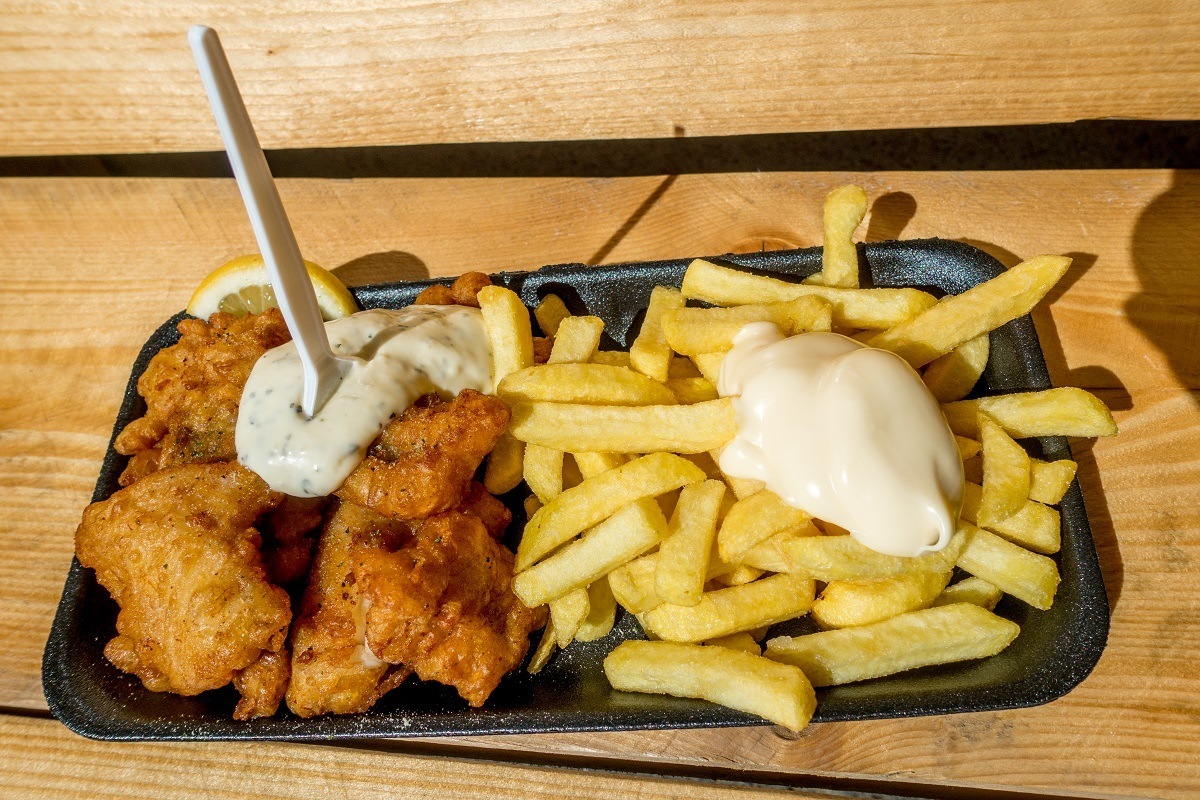
18 Delicious Dutch Foods to Try in Amsterdam at Least Once
Mix the flour with the milk, water (or beer), eggs, salt and pepper. Preheat the deep fryer to 170-180C. Add the fish to the batter, stir around gently. Carefully slide the fish pieces one by one into the hot oil. Don't overcrowd the pan, this will drop the temperature of the oil too much, causing the batter to be soggy instead of crisp.
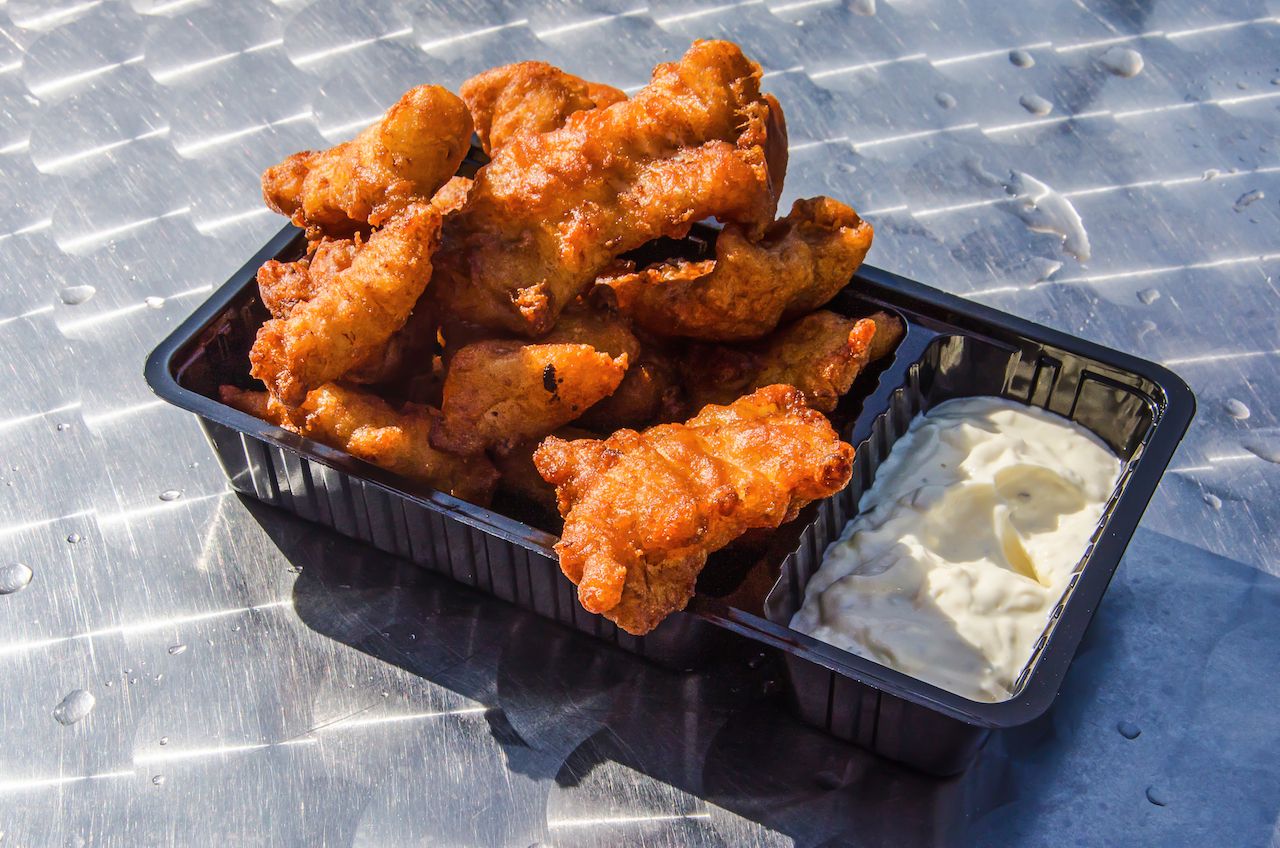
What Is Dutch Kibbeling and Where To Try It in Amsterdam and Holland
Leave the fish on the side and make the batter by mixing all ingredients together, no worries if there are still a few clumps. Heat oil 180C (if frying small batches a wok will work well, you can also use a deep frier). Put the fish in the batter mix. Make sure all sides of all pieces are coated with a layer of batter.

Vegetarian 'Kibbeling' Delicious Fried Cauliflower Dutch Food Heritage
The Dutch are known for their fondness for snacks. One of the most popular street delicacies is Kibbeling, which has its roots in the 19th century. Kibbeling, which you can find in almost all street markets, is a snack consisting of battered fish pieces. The word kibbeling is derived from the combination of kabeljauw meaning cod and wang.
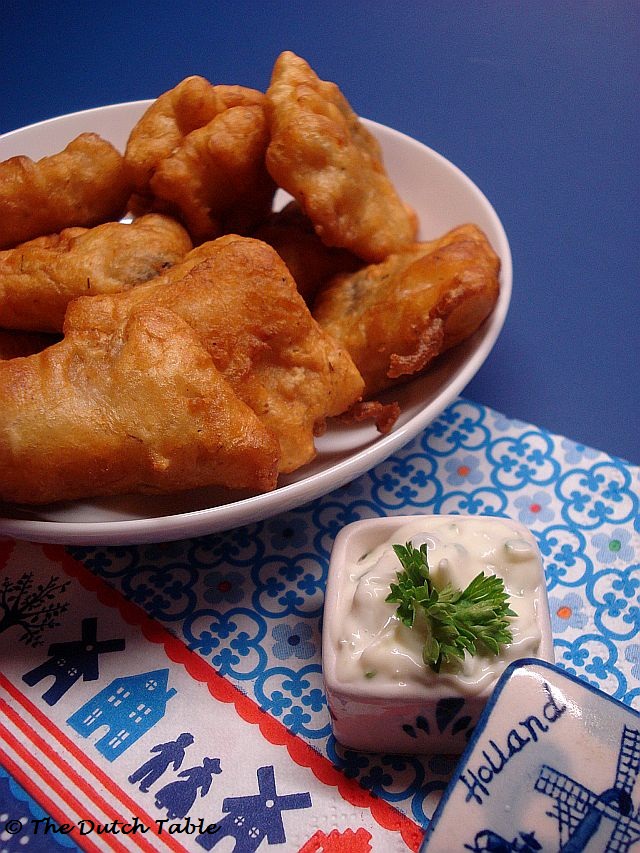
The Dutch Table Kibbeling
Wat is kibbeling? Kibbeling, een geliefde gefrituurde visdelicatesse in Nederland, heeft zijn oorsprong in de visserijgemeenschappen. Het zijn doorgaans stukjes witvis, zoals kabeljauw, die worden gepaneerd en vervolgens gefrituurd tot een knapperige lekkernij. 2. Traditionele kruiden voor het bakken

Kibbeling De K van Koken
Verwarm de oven voor op 180 °C. Meng de citroenmayonaise met de kappertjes en helft van de bieslook. Dep de kabeljauw droog met keukenpapier en bestrooi met peper en zout. Kook de bloemkool in een ruime pan met water en zout 4 min. Giet af en laat uitlekken. Doe in de ovenschaal en bestrooi met peper, de rest van de bieslook en de kaas.

Zelf kibbeling maken Season with love
In the Netherlands, kibbeling is the fish snack par excellence. It is made up of pieces of cod or other white fish, dipped in a batter, then fried. What is kibbeling? Kibbeling is a dish of Dutch cuisine made up of irregular pieces of fish that are first sprinkled with spices, then dipped in a batter made from lager beer, then fried. The word kibbeling originally meant the remains, usually the.

Kibbeling Receta Tradicional Holandesa 196 flavors
Wat is kibbeling? Kibbeling is een Nederlands streetfoodgerecht avant la lettre, bestaande uit stukjes witte vis, gedompeld in een licht beslag en knapperig goudbruin gefrituurd. De snack wordt in porties van verschillende grootten verkocht en geserveerd met een dipsaus, vaak remoulade of knoflooksaus..
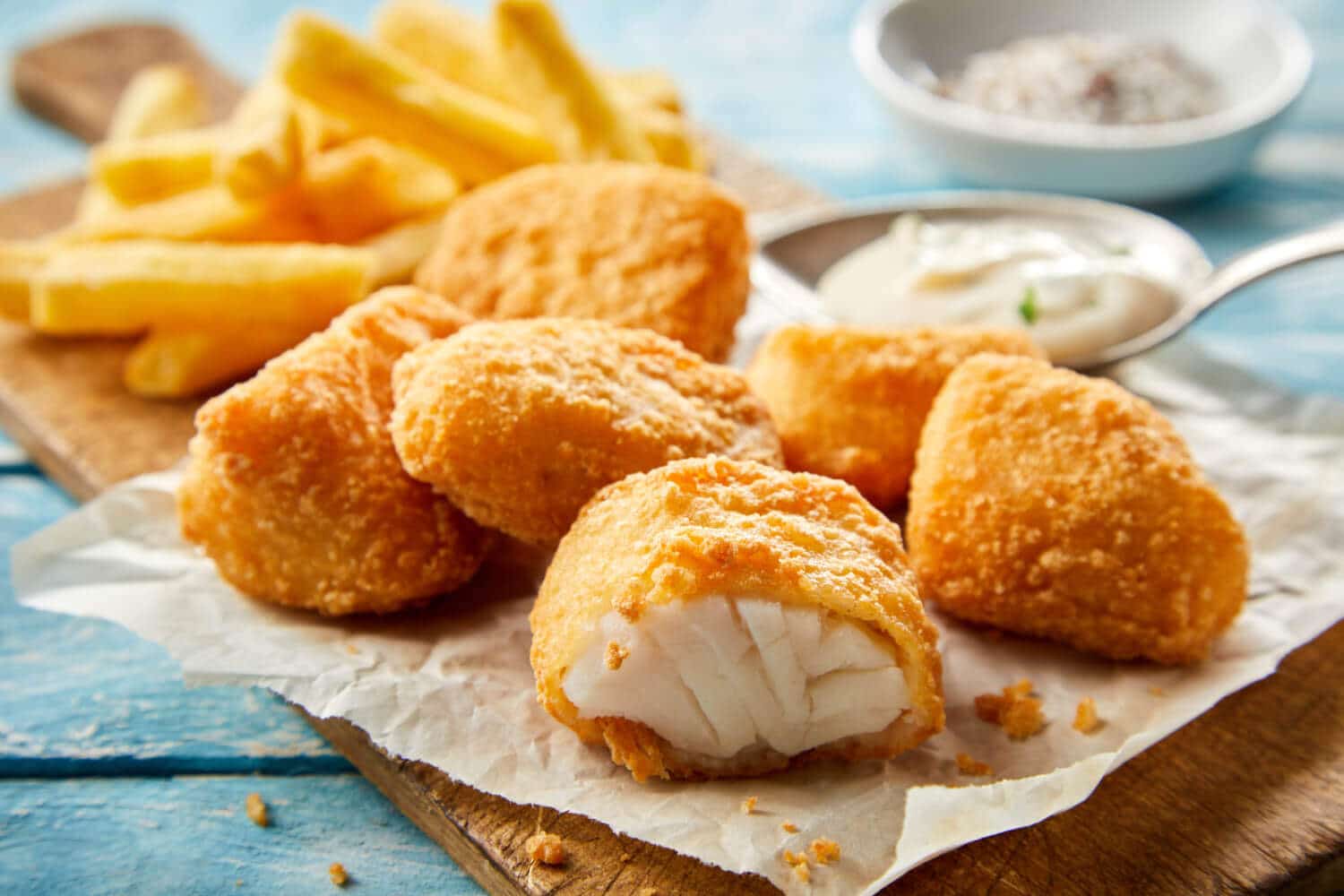
14 Kibbeling Rezept RezeptSammler
Allow to cool down, cover with plastic wrap and put in the fridge until use. 2 Make the ravigote sauce. Boil the egg in a large pot for 8 minutes. Rinse under cold, running water, peel and cut into pieces. Stir the mayonnaise into a bowl and mix in the parsley, gherkin, shallot, capers and chives. Put the cooked egg through a sieve into the.

RECEPT Kibbeling maken OhMyFoodness YouTube
Kibbeling is een snack die bestaat uit stukken gesneden vis die in beslag worden gedompeld en daarna gefrituurd.Het woord kibbeling duidde van oorsprong op gezouten kabeljauw en zou een verbastering van het woord zijn. De rest van de vis werd bij voorkeur als moten opgediend, zodat de wangen min of meer als afval van de kabeljauwvangst golden, in de negentiende eeuw een belangrijk bestanddeel.